G/10648 L/Cpl Ernest Blamires
Served with the 23rd Bn Middlesex Regiment (2nd Football)
Died 25th March 1918 during the Battle of Bapaume, Arras
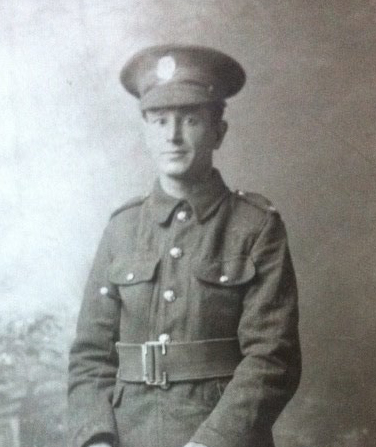
L/Cpl Ernest Blamires

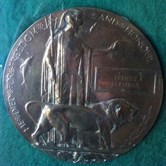

He was born in Dewsbury in 1884 and was a power loom tuner and later a cloth designer.
In 1915 he enlisted in Leeds in the New Army often referred to as Kitchener's Army. Ernest joined the 23rd Bn Middlesex Regiment (2nd Football). In common with other ‘named’ service battalions this was the second battalion raised from men in a profession or group, in this case those playing football. He married shortly afterwards at the age of 31 to 21 year old Edith Lickley who gave birth to his only child Nora in the December of the same year.
The 23rd Bn moved to France in May 1916 and then on to Italy in November 1917. They then returned to France in March 1918 and it was shortly afterwards in the first battle of Bapaume that he was killed (missing presumed dead). He is remembered with honour at the Arras Memorial in the Nord-Pas-de-Calais region of France.

Further Information Of Interest
In the First World War, The Middlesex Regiment (Duke of Cambridge’s Own) formed a total of 49 Battalions this was mainly due to a surplus of volunteers seeking to enlist. The Regiment received a total of 81 battle honours, 5 Victoria Crosses and lost approximately 12,270 casualties during the course of the war.
The Battle of Bapaume 24th / 25th March 1918
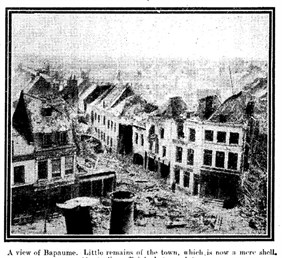
Memorial To The Footballer’s Battalions
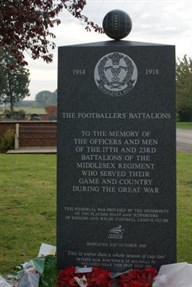
Walter Tull - (Served with Ernest and died on the same day)
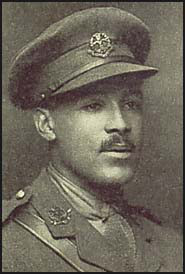
Walter Tull became the British Army’s first black officer. He served in Italy with The 23rd (2nd Football) Battalion and was mentioned in dispatches. He returned to France in 1918 and was killed on 25 March 1918 during the German offensive at Arras.
On March 21, 1918, the Germans made one last desperate effort to win World War One. Walter Tull was a 29 year old 2nd Lieutenant when he found himself in the British trenches facing advancing Germans.
On 25 March, 1918, he was killed by machine gun fire near Favreuil aerodrome trying to help his men retreat. Several of his men including, Leicester goalkeeper, Private Tom Billingham, attempted to retrieve his body under heavy fire but were unsuccessful due to the enemy soldiers advance. Their brave actions are a testament to Walter Tull's character and leadership qualities. Walter's body was never found and he is one of thousands of soldiers from World War One who have no known grave.
Having no known grave, his name is inscribed on Bay 7 along side Ernests on the Arras Memorial, Faubourg-d'Amiens Cemetery, Arras, France. In 1999 Walter Tull's former club, Northampton Town, erected a memorial outside of Sixfields Stadium, naming the road to the stadium "Walter Tull Way". In 1921 Walter's family in Dover ensured that his name was inscribed on the Parish Memorial at River, and in 1924 on the Dover Town Memorial.
Submitted by: Andy Jackson with thanks to Lisa Jackson